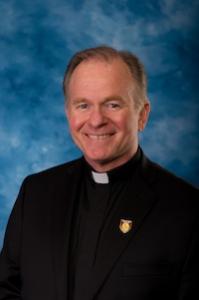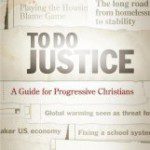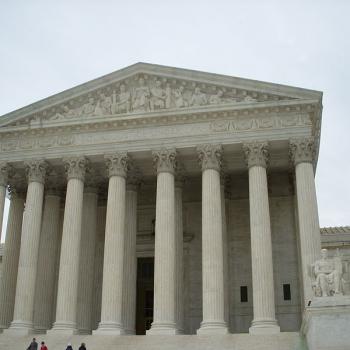Two weeks ago, Paul Ryan fired Father Patrick J. Conroy, the first Jesuit chaplain of the U.S. House of Representatives. Father Conroy is also the first House chaplain ever to have been fired.
Conroy was nominated for the position in 2011 by Speaker of the House John Boehner in consultation with Nancy Pelosi and has been reelected every two years at the beginning of each new session of the House.
While Conroy was not given a reason for being asked to resign, he did note that a prayer he offered in November as Congress was debating the new tax bill caused a surprising response from the Speaker’s office.
His prayer included the following:
May all members be mindful that the institutions and structures of our great nation guarantee the opportunities that have allowed some to achieve great success, while others continue to struggle. . . May their efforts these days guarantee that there are not winners and losers under new tax laws, but benefits balanced and shared by all Americans.
The following week someone from the speaker’s office chastised Father Conroy saying, “We are upset with this prayer; you are getting too political.” Not too long after that reprimand, Ryan told Father Conroy directly, “Padre, you just got to stay out of politics.”
Conroy countered, “That is what I have tried to do for seven years. It doesn’t sound political to me.” And yet, this prayer was the first time anyone from the speaker’s office had ever accused him of being “too political.”
What’s going on?
At its core, what this controversy highlights is an ongoing divide in this country over what it means to be Christian. This is not a struggle between Catholicism and Protestantism (Ryan and Conroy are both Catholics) but a struggle between an understanding of faith as a private affair focused on individual piety and salvation and faith as a community endeavor focused on promoting the common good.
As a lifelong Presbyterian, I look for candidates for public office who are also concerned about addressing poverty, racism, social exclusion, violence against women and minorities (including sexual minorities) and other social problems that ravage our communities.
As a Christian ethicist, I believe that all people of faith bring our faith commitments and beliefs to the public square when we debate public policy and legislation and that we should. The faith commitments that we hold naturally shape how we think about economic and social policy.
My faith as a progressive Christian is rooted in the social gospel tradition of Jesus’ championing of the poor and marginalized and the Hebrew prophets insistence that the community care for the poor, the widow, the orphan, the stranger – those who are most marginal in our society.
Jesus and the Poor
Jesus didn’t say to the lame, “Rise up and go get a job!” or to the poor, “If you only worked harder you could care for your family!”
No. Jesus recognized that the structures of his society were unjust. He also recognized the vagaries of life and that circumstances of ill health, untimely death, a lost job, or other tragedy are part of life. When he said “the poor you will always have with you” (John 12:8), it was not an invitation to accept the reality of poverty as an inevitable fact of life. Rather, it was an assessment of the injustice inherent in human societies and a challenge to us to do better. A challenge to us to do what Deuteronomy 15 calls us to do:
“If there is among you anyone in need, a member of your community in any of your towns within the land that the Lord your God is giving you, do not be hard-hearted or tight-fisted towards your needy neighbour. You should rather open your hand, willingly lending enough to meet the need, whatever it may be. . . . Since there will never cease to be some in need on the earth, I therefore command you, ‘Open your hand to the poor and needy neighbour in your land.”
Poverty in the U.S.
In the contemporary United States, we have structured an economy that creates poverty. An economy that impoverishes people. This is not the fault of our welfare policy or our social safety net. Our dependency on a capitalist economic model to solve poverty cannot and will not work because capitalism is designed to generate profits for the owners of capital – not to eliminate poverty.
This is not rhetoric – it is fact.
In the US, the wages of workers who fall into the bottom half of earners have dropped their share of income from roughly 20% of the total between 1962-1980 to 12.5% in 2014, while the top 1% doubled their share of income to over 20%. This is not about relative levels of wealth distribution. It is about absolute poverty. It is about the ability of working people to pay their bills with wages and salaries that do meet the standard of a living wage.
One recent study found that only 25% of jobs in this country fall into the category of “good jobs” when that is defined as paying at least $32,000 a year and offering health care and pension benefits.
Father Conroy’s prayer was a reminder of the heavy burden that our legislator’s bear to create public policies that promote the common good, policies whose benefits are shared broadly across society, policies that do not disproportionately benefit the wealthy at the expense of the poor.
In a country with an economy that fails to offer working people jobs that allow them to cover the costs of their expenses, a prayer reminding legislators that all Americans should benefit from their policies is not only warranted – it is morally admirable.













